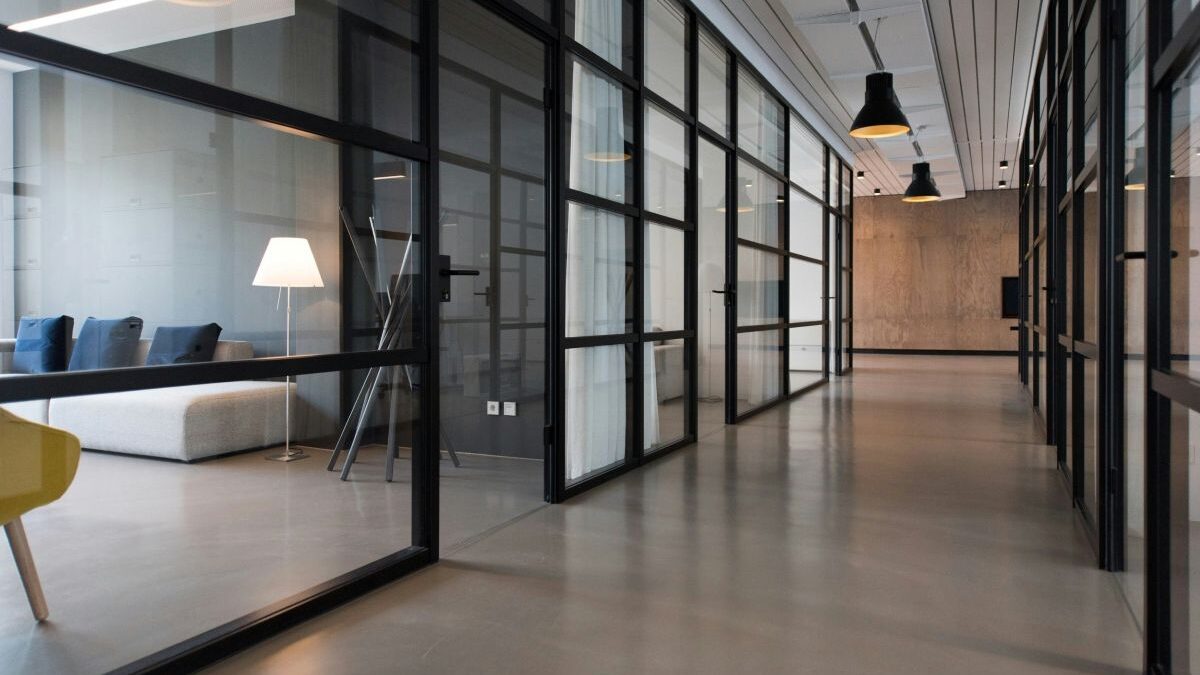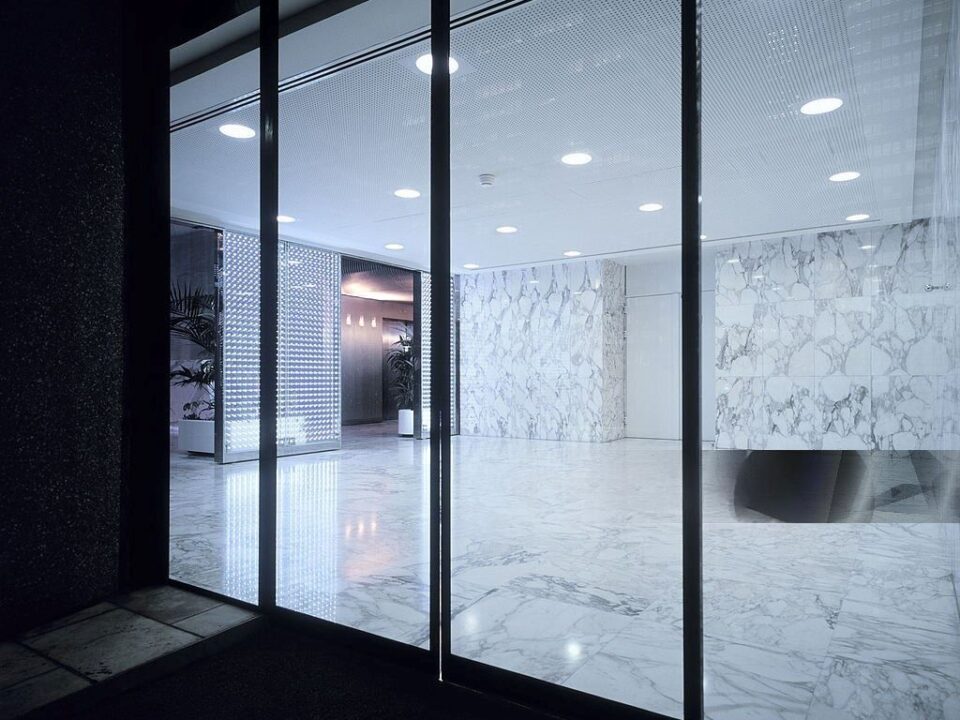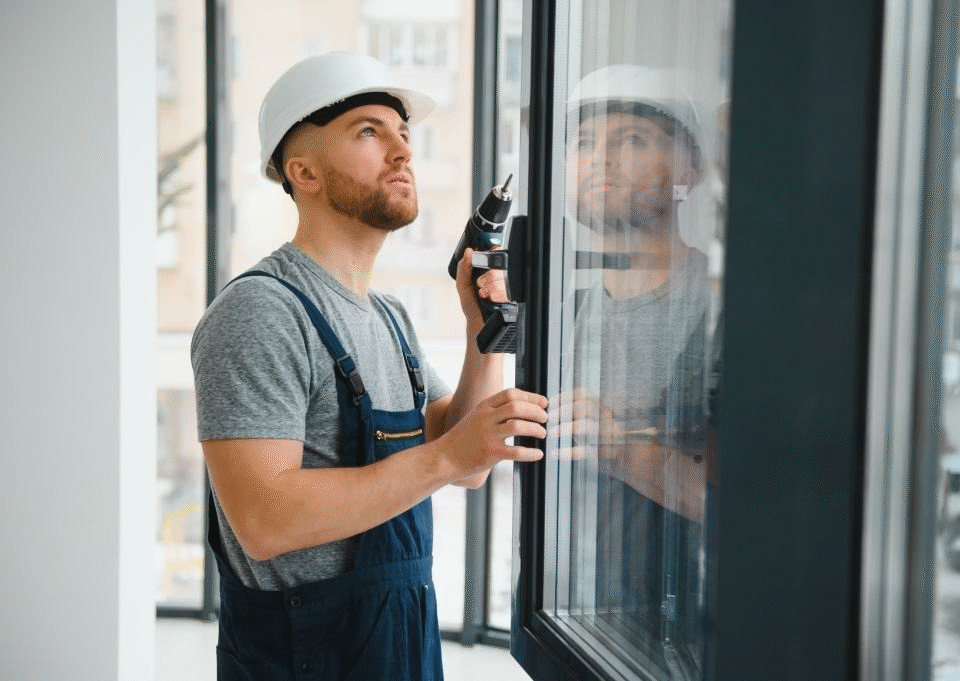
Door Glass Replacement vs. Door Replacement: Which Option Is Right for You?
January 28, 2025
When to Call for 24/7 Glass Repair: Common Scenarios That Require Immediate Attention
February 2, 2025In busy urban areas, noise can be a constant issue for commercial spaces. Offices, clinics, retail stores, and other businesses often face noise pollution from traffic, construction, and nearby activities. This noise can disrupt productivity, make patients uncomfortable, or affect the overall customer experience. Luckily, there’s a solution: selecting the right window glass can significantly reduce the noise coming from outside. If you’re planning a commercial window replacement or need to replace glass in windows, understanding which options best reduce noise is essential for improving the comfort and efficiency of your commercial space.
Why Noise Reduction is Important for Commercial Spaces
In noisy environments, external sounds can disturb employees, clients, or patients, impacting both productivity and comfort. For example:
- In offices, distractions from outside noise can reduce focus and lead to higher stress levels.
- In clinics or hospitals, noise can negatively affect the healing process and make patients feel uneasy.
- In retail businesses, loud outside noise can distract customers and make it hard for them to focus on shopping.
To mitigate these challenges, upgrading your windows to noise-reducing glass is an effective way to create a quieter, more comfortable environment. Whether you are upgrading your windows for soundproofing purposes or replacing old glass, choosing the right materials is key to achieving the best results.
Understanding Soundproofing and Noise Reduction in Windows
When thinking about commercial window replacement for noise reduction, it’s important to know how soundproofing works. Soundproofing focuses on blocking sound from passing through walls, windows, and other barriers. There are two key strategies for effective soundproofing in windows:
- Mass: Heavier materials are better at blocking sound.
- Sealing: Ensuring there are no gaps or cracks around the windows is crucial, as sound can sneak through these small openings.
For the best noise reduction in commercial spaces, you need windows that are both solid (to block sound) and properly sealed to keep noise from sneaking in through cracks. Below are some of the best window glass options for soundproofing.
Best Window Glass Options for Noise Reduction
- Laminated Glass
Laminated glass is one of the top choices for reducing noise. It’s made by sandwiching a layer of plastic (usually polyvinyl butyral, or PVB) between two pieces of glass. This plastic layer is key in absorbing sound waves and reducing the amount of noise that passes through.
Laminated glass is especially beneficial for businesses located in noisy areas, such as those near highways, airports, or construction zones. It offers several advantages:
- Superior noise reduction: The PVB layer absorbs sound and helps reduce outside noise.
- Increased security: The plastic interlayer also makes the glass harder to break, adding extra security.
- UV protection: Laminated glass blocks up to 99% of harmful UV rays, protecting your interior furnishings from fading.
If you’re looking for a soundproofing solution for your business in a noisy area, laminated glass is a fantastic option when it comes to replacing glass in windows.
- Double or Triple Glazed Windows
Double and triple glazed windows feature two or three layers of glass, respectively, with air or gas (such as argon) in between. These extra layers provide insulation against sound and help to reduce noise levels.
While double-glazed windows are already well-known for their energy efficiency, they also offer good noise reduction. For even better soundproofing, consider triple-glazed windows. These windows use three layers of glass to create a thicker barrier against noise.
Benefits of double or triple glazed windows:
- Improved insulation: These windows help keep your building temperature stable, reducing energy costs.
- Effective soundproofing: The layers of glass and insulating gas block out much of the external noise.
- Energy efficiency: Besides reducing noise, they also reduce the need for heating and cooling, making your building more energy-efficient.
If you are looking for a window solution that offers both noise reduction and energy efficiency, double or triple glazing should be high on your list.
- Acoustic Glass
Acoustic glass is specifically designed to reduce noise transmission. It is made with thicker glass layers combined with special interlayers that absorb sound more effectively than traditional glass.
Acoustic glass can be custom-made for different needs, depending on the noise levels in your area. For example, it’s perfect for commercial spaces near airports or busy streets.
Benefits of acoustic glass:
- High sound insulation: Acoustic glass is specifically built to block sound and create a quieter environment.
- Customization: You can adjust the glass to meet the exact noise reduction requirements of your space.
- Maintains visibility: Unlike some other soundproofing materials, acoustic glass doesn’t obscure your view or block natural light.
If you’re located in an area with high noise pollution and want the best soundproofing results, acoustic glass should be your top choice.
- Low-E Glass with Acoustic Properties
Low-E (Low Emissivity) glass is well-known for its energy efficiency. It has a special coating that reflects heat to help regulate the building’s temperature. But when combined with other soundproofing technologies, Low-E glass can also reduce noise effectively.
Low-E glass with acoustic properties combines the benefits of thermal insulation and sound reduction, making it ideal for spaces that need both energy efficiency and noise control.
Benefits of Low-E glass with acoustic properties:
- Dual benefits: It provides noise reduction while also helping with energy efficiency.
- Comfort: This combination of features keeps the indoor environment comfortable, regardless of outside noise.
- UV protection: Low-E glass blocks harmful UV rays, which helps protect your furniture and interior decor.
For businesses looking for a balance of soundproofing and energy savings, Low-E glass with acoustic properties is a great option.
- Window Films for Noise Reduction
If you’re on a tighter budget or don’t want to replace your entire set of windows, window films can offer a quick and affordable solution to reduce noise. These films are made from materials that can be applied to existing windows, enhancing their ability to block sound.
While window films don’t provide the same level of soundproofing as laminated or acoustic glass, they can still help reduce noise by adding a layer of sound-dampening material to the glass.
Benefits of window films:
- Cost-effective: Window films are a more affordable alternative to replacing windows entirely.
- Easy installation: They can be applied without the need for replacing the entire window.
- Energy efficiency: In addition to reducing noise, window films can also improve the insulation of your current windows.
If you’re looking for a budget-friendly solution for improving noise reduction, window films are worth considering.
Factors to Consider When Choosing Window Glass for Noise Reduction
- Location of Your Building: The level of external noise in your area will influence your choice of window glass. For high-noise areas, like near busy roads or airports, laminated glass or acoustic glass may be necessary. For quieter areas, double glazing might suffice.
- Budget: More advanced soundproofing options, such as laminated or triple-glazed windows, can be more expensive. Make sure to choose a solution that fits your budget while still providing the noise reduction you need.
- Energy Efficiency: Many noise-reducing windows, such as double-glazed or Low-E glass, also offer energy-saving benefits. Consider how much you can save on heating and cooling costs when choosing your windows.
- Aesthetics: Choose a window option that matches your building’s aesthetic. Glass options like laminated or acoustic glass allow for clear visibility, which is important if you want to maintain a bright, open space.
- Building Codes: Ensure that your choice of window glass meets local building codes and regulations, especially when doing a commercial window replacement.
When selecting window glass for noise reduction, it’s essential to choose the right type based on your location, budget, and specific needs. Laminated glass, double or triple glazing, acoustic glass, and Low-E glass with acoustic properties all offer excellent soundproofing benefits. By investing in the right window glass, you can create a quieter, more comfortable environment for employees, clients, and patients.
If you’re considering replacing glass in windows for noise reduction, it’s important to consult with a professional who can guide you toward the best option for your commercial space. With the right glass, you can reduce distractions, improve productivity, and enhance comfort, all while creating a more peaceful environment in your commercial space.





